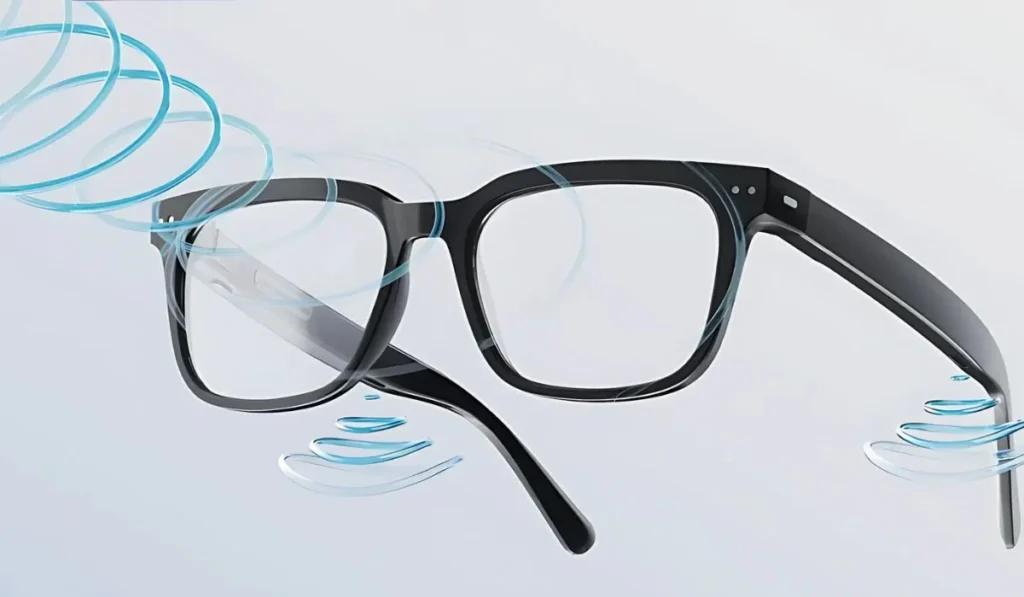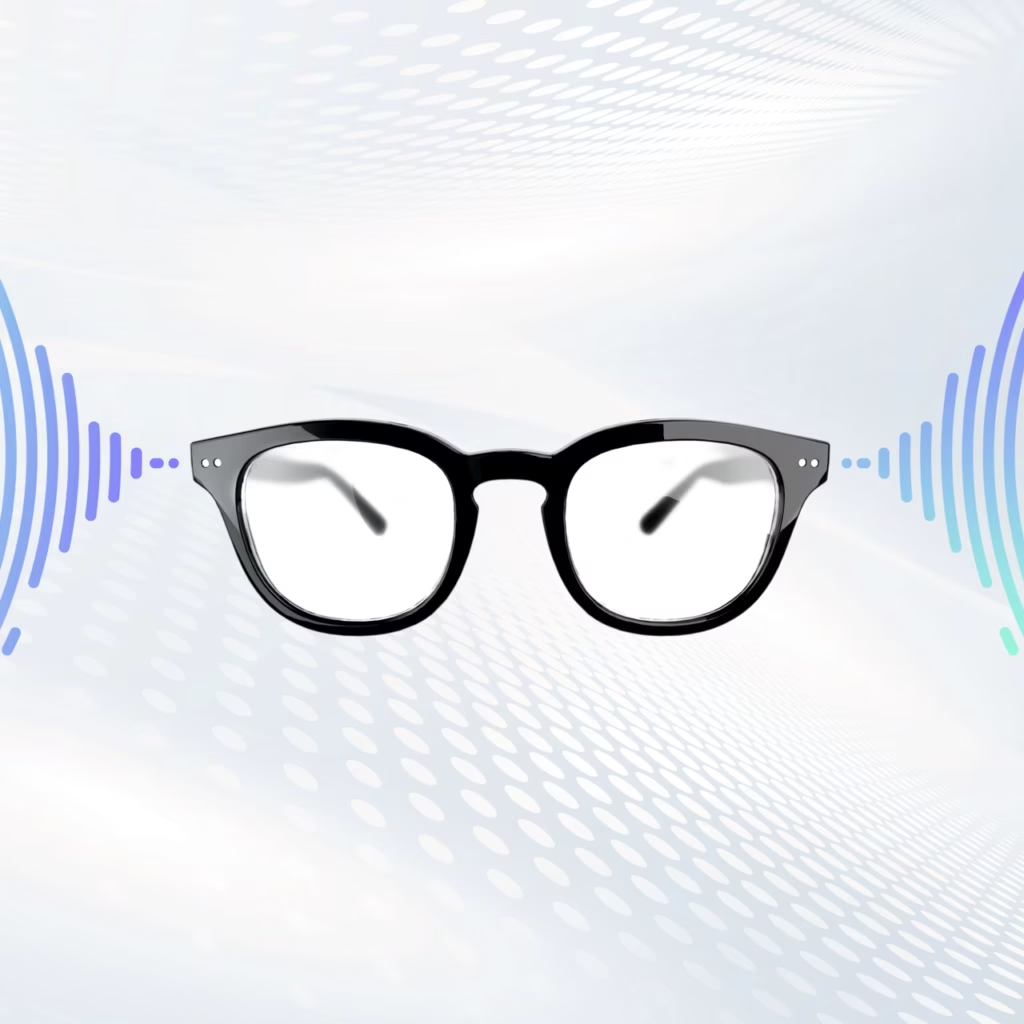Imagine one smart device helping you see and hear better at the same time. That’s exactly what eyeglasses with hearing aids offer—a practical solution to a common problem many people face. For millions of individuals around the world, hearing and vision issues often go hand-in-hand, especially with age. So why not solve both problems with a single device?
Eyeglasses with hearing aids are becoming more popular due to their convenience, sleek design, and advanced technology. In this article, we explore how this innovative idea is transforming lives, the technology behind it, and what to consider before buying.
The Need for Dual Sensory Assistance
A Common Problem, A Smarter Solution
Many older adults suffer from both hearing loss and poor vision. According to the World Health Organization, over 430 million people worldwide experience disabling hearing loss, while more than 2.2 billion live with some form of vision impairment. A large percentage deal with both.
This dual sensory decline can seriously impact quality of life. Social interaction, reading, watching TV, or simply going for a walk can become difficult. Traditional solutions involve managing two separate devices—glasses for vision, and hearing aids for sound. But what if one gadget could take care of both?
That’s where eyeglasses with built-in hearing aids come in.
How Eyeglasses with Hearing Aids Work

The Integration of Vision and Sound Technology
These dual-function devices combine prescription lenses with miniature, discreet hearing aids hidden in the temple arms (the sides of the glasses). The hearing components use bone conduction or directional microphones to deliver clear sound straight to the ears or even through the skull’s bones.
Here’s a basic breakdown:
- Prescription Lenses – Customized to match your visual needs
- Microphones – Pick up external sounds and voices
- Amplifiers – Boost sound volume for clearer hearing
- Speakers or Vibrations – Deliver sound either into or near your ears
- Rechargeable Batteries – Power the hearing aid components
Most models offer Bluetooth connectivity, allowing users to stream audio from phones or TVs directly into their glasses.
Benefits of Eyeglasses with Hearing Aids
Convenience and Comfort
Managing two separate devices can be a hassle. Combining them saves time and effort—no more switching between glasses and hearing aids or forgetting one at home. Wearing one comfortable, familiar device all day makes things simpler.
Discreet Appearance
Many people feel self-conscious wearing traditional hearing aids. These smart eyeglasses hide the hearing tech, offering a stylish and discreet alternative. They look like regular glasses but function like a personal sound system.
Cost-Effective in the Long Run
While the upfront cost may seem high, combining two medical devices into one can actually save money over time. You’re not buying two separate gadgets, batteries, accessories, or service plans.
Better Fit and Sound Positioning
Because the microphones are located close to the ears, the sound quality tends to be more natural. Additionally, the stable frame of the glasses helps keep the hearing aids in the perfect position—reducing whistling or feedback noises.
Ideal for Seniors
This device is especially helpful for elderly people who may struggle with operating multiple devices. With one gadget doing the job of two, daily life becomes easier and less stressful.
Popular Brands and Models to Watch
Some well-known brands and start-ups are now offering eyeglasses with hearing aids, and each has its own strengths:
SoundGlasses by Iristick
These smart glasses offer real-time audio enhancement using microphones and speakers near the temples. They also come with prescription lenses and connectivity to smartphones.
Nuheara IQbuds + Smart Glasses Combo
While not integrated into one unit, Nuheara offers smart earbuds that work well with their smart glasses to deliver a dual-sensory experience. A more modular approach.
Eargo x Eyewear Solutions
Companies like Eargo are exploring partnerships with eyewear designers to embed their hearing tech into stylish, lightweight frames.
Olive Union Smart Glasses (Upcoming)
Olive Union, known for accessible hearing aids, has announced upcoming smart glasses with built-in hearing assistance, tailored for daily use and style.
Things to Consider Before Buying
Not all eyeglasses with hearing aids are made equal. Here are a few things to check before you invest:
Prescription Compatibility
Make sure your glasses can be customized to your prescription—both single vision and progressive lenses.
Type of Hearing Loss
These devices are best suited for mild to moderate hearing loss. Severe cases may still require specialized hearing aids.
Battery Life
Choose models with long-lasting or rechargeable batteries. Battery life is essential if you wear them daily.
Bluetooth and App Support
Smart features such as sound adjustment, noise reduction, and call streaming enhance user experience.
Durability and Weather Resistance
Since they’re worn on your face, the device should be water and dust-resistant to handle daily life.
Are There Any Downsides?
While they offer a lot of benefits, it’s important to be aware of potential drawbacks:
- Initial Cost: Most models range from $500 to $2000, depending on features
- Not for All Hearing Loss Types: Those with severe or specific types of hearing impairments may still need traditional devices
- Technology Learning Curve: Seniors or non-tech users might need some support to learn features
- Maintenance: Cleaning both lenses and audio parts takes a bit of extra care
The Future of Dual-Sensory Wearables
As technology advances, the lines between different types of wearable devices are starting to blur. In the future, we could see eyeglasses that not only help us see and hear better but also offer health tracking, translation tools, navigation, and even augmented reality (AR).
Tech companies are heavily investing in this field, and it’s likely that we’ll see more compact, lightweight, and AI-powered versions in the next few years.
Real-Life Impact: What Users Say
People who’ve tried these devices report a noticeable improvement in quality of life.
“It’s like someone just turned the volume of life back up. I didn’t realize how much I was missing until I got these glasses.” – James H., 67
“I’m more confident now. I don’t worry about missing conversations or having to say ‘what?’ all the time.” – Anita R., 58
For many, it’s not just about convenience—it’s about reconnecting with the world around them.
Who Should Try Eyeglasses with Hearing Aids?

These dual-function glasses are ideal for:
- Older adults facing age-related vision and hearing loss
- People with mild to moderate hearing issues
- Tech-savvy users looking for smart lifestyle gadgets
- Individuals seeking a discreet alternative to hearing aids
- Anyone tired of managing two separate devices
Final Thoughts: One Device, Two Big Benefits
Eyeglasses with hearing aids are more than just a cool idea—they’re a practical, thoughtful solution to a real problem. By addressing two of the most common sensory impairments in one device, they make everyday life easier, more enjoyable, and more connected.
Whether you’re chatting with family, watching a movie, or reading a menu in a noisy restaurant, having both clear vision and sharp hearing makes all the difference.
Read Next – SoftBank Founder’s Bold Plan to Lead in Artificial Superintelligence





